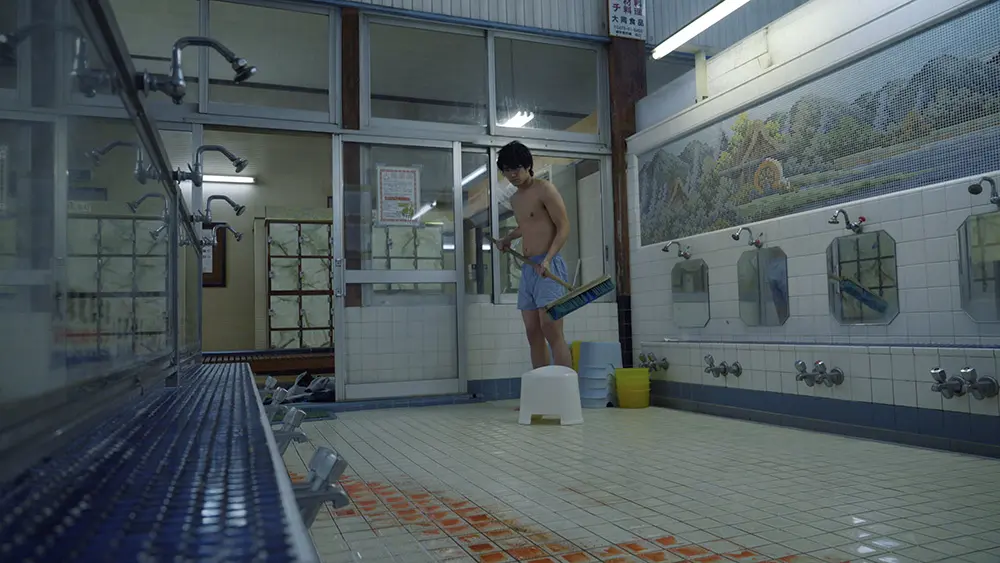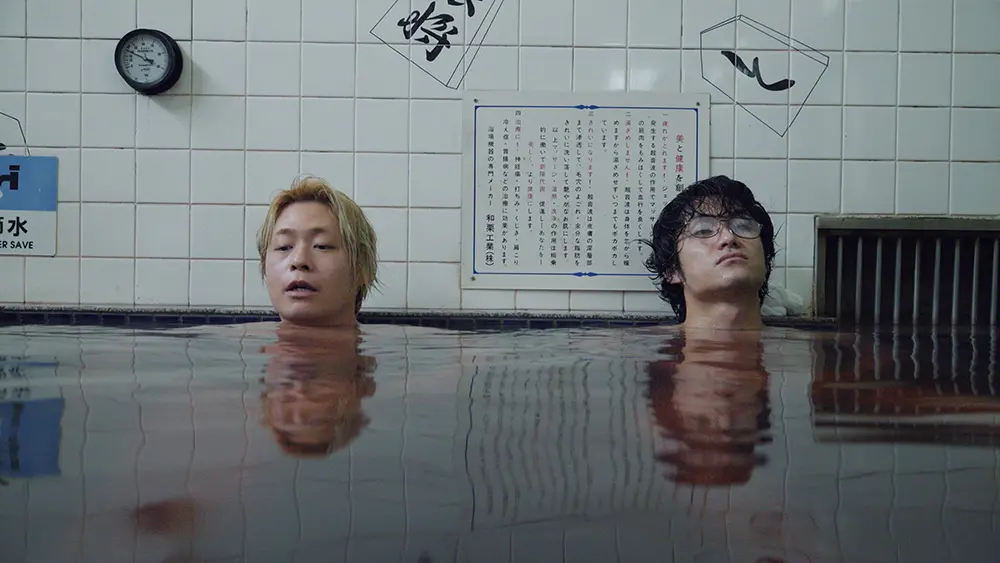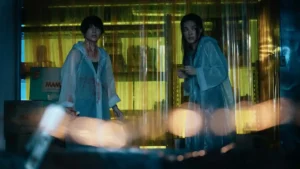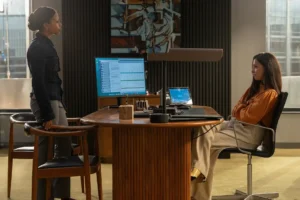Summary
An impressive drama from a new Japanese filmmaking team, about finding happiness in a life without direction, and about crimes taking place under our noses.
Melancholic (not to be confused with Lars von Trier’s Melancholia) is an unusual film. Consequently, and unusually, I won’t be comparing it with any other films in this review. In a nutshell, it is the story of unassuming Nabeoka Kazuhiko (played by Yôji Minagawa, who also produced the film), a Tokyo University graduate who – contrary to expectations – has not found a job, let alone a business career. A chance meeting with someone he knew at school leads him to take work at a bathhouse, not knowing at first that the place is used for easy-to-clean yakuza executions after hours.
As Melancholic progresses, it also becomes the story of Kazuhiko’s growing friendship with the more confident Matsumoto (played by Yoshitomo Isozaki, who also choreographed the action scenes), who took a job at the bathhouse at the same time. As they get to know each other’s lives and backgrounds (via their night-time jobs), Kazuhiko considers what he wants from life and discovers moments of happiness.
Melancholic is a film set in the real world: there is no glamour, no car chases, no fantasy or deus ex machina. Kazuhiko’s ennui and lack of direction are plausible reactions to societal pressure, and the establishment of his down-to-Earth family lifestyle sets up an amusing contrast with the gang killings taking place behind nearby closed doors; who knows what is happening elsewhere in our town? The way one chance meeting leads to both a job and a girlfriend (the adorable Mebuki Yoshida) may be a little far-fetched, but neat occurrences can happen in seemingly dull lives at times.

There is blood in Melancholic, but it is infrequent, and the violence itself is largely off-screen. This is a drama, rather than a thriller; somehow with more bittersweet comedic moments than black humor. This is helped by the contrasts between the main characters’ outlook, and their sheer endearing personalities: Matsumoto is brash, cocky and at the same time somehow modest about his hidden work; Kazuhiko has very little to say, but questions everything, taking care not to cause any offense; and Yuki is simply a sweet, accepting woman. The minor characters are more two-dimensional, of course, but we can see a great deal of Kazuhiko’s parents’ affection from just a couple of scenes. As for the yakuza boss and his cronies… well, he’s simply a loud-mouth, and they are just expected to do what they’re told.
I’ve already hinted a little at the themes of the film and to be honest, I’m reluctant to say much more: I got a lot out of simply digesting it as I went along and reflecting afterward. Indeed what felt like a flaw while watching the first half (an almost monotone style to the pace and delivery) made perfect sense once I looked back.
You may have noticed I haven’t cited other films the cast has been involved in: this is the first film for everyone involved, making its success especially remarkable. Melancholic was directed and written by Seiji Tanaka, or to put it more correctly, Minagawa, Isozaki, and Tanaka devised the tale together, Tanaka developed the script and they put it all together from the resources in their theatre troupe. Ryô Takahashi’s cinematography is both naturalistic and carefully applied throughout, and I honestly would not have guessed when watching that it was such a grassroots venture.
In 2018, though, Melancholic won the director award at the Tokyo International Film Festival, as well as several other awards the same year. In 2019, it was released in Japanese cinemas and is being released on BluRay in September 2020. It is a strikingly impressive blend of crime, gentle humor, and character study, and I have no doubt this team will have more to show us.




